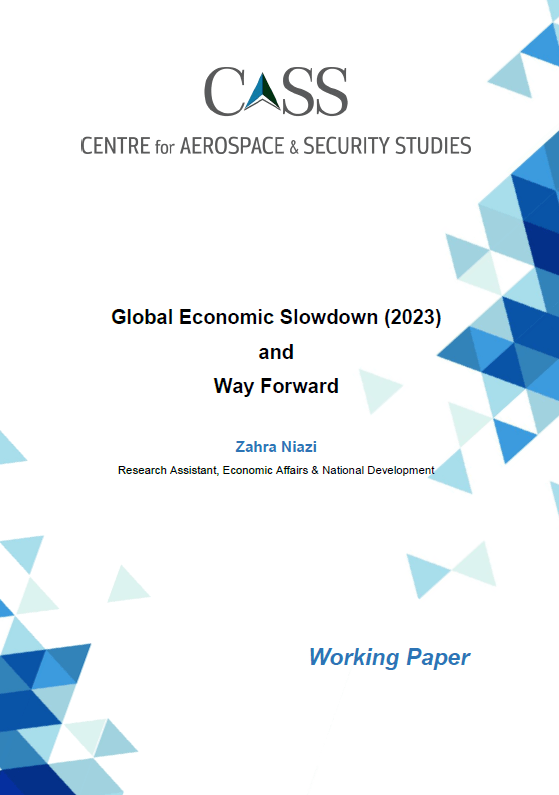Abstract
Globally, an economic downturn has been observed in 2023, and the global growth forecasts for the year have been downgraded from their 2022 levels. The present working paper aims to explore causes and consequences of the global economic slowdown in 2023, highlight the potential sources of upside and downside risks to the global economy, and analyse the future growth outlook for 2024 and beyond. It identifies the economic fallout of the war in Ukraine, the global interest rate hikes, the prolonged effects of the COVID-19 pandemic, and the impacts of climate change as the major contributing factors to the global economic slowdown alongside the decline in global investment, a slowdown in global trade, debt distress, political instability, a weakening in productivity growth, an interruption of the global environmental action, the decrease in global commodity prices, as well as the rise in poverty, inequality, and unemployment as its major adverse consequences. It also shows that global growth is expected to remain sluggish in 2024 and below potential during the remainder of the decade. Further downside risks to the global economy in the foreseeable months, majorly attributable to a potentially widespread financial turmoil metastasising from banking stress in advanced economies, also loom large. However, factors such as a faster-than-expected consumption recovery or strengthening of the labour market can lead to stronger-than-expected global economic growth. Pursuing a data-driven monetary policy, addressing supply side constraints, investing in climate resilience, and implementing precautionary measures to prevent a banking crisis will be imperative to address the causes of the economic slowdown and downside risks. While strengthening official support to developing countries and emerging economies, implementing structural reforms at the national level to boost economic recovery, boosting global trade, focusing on employment protection and recovery, alongside strengthening social protection will be vital to avoid the worst outcomes.





